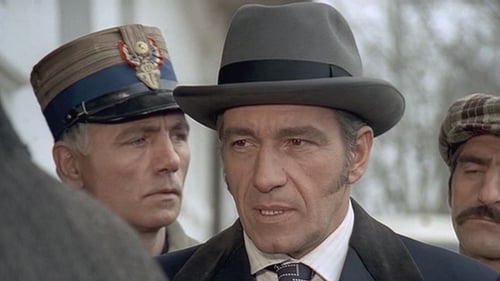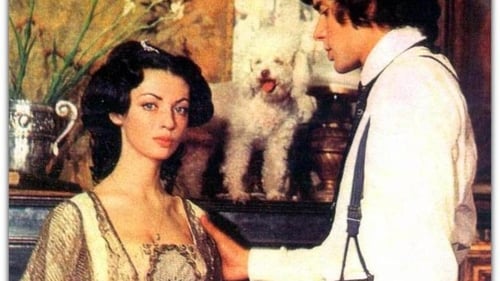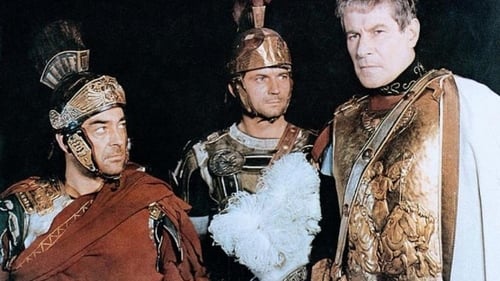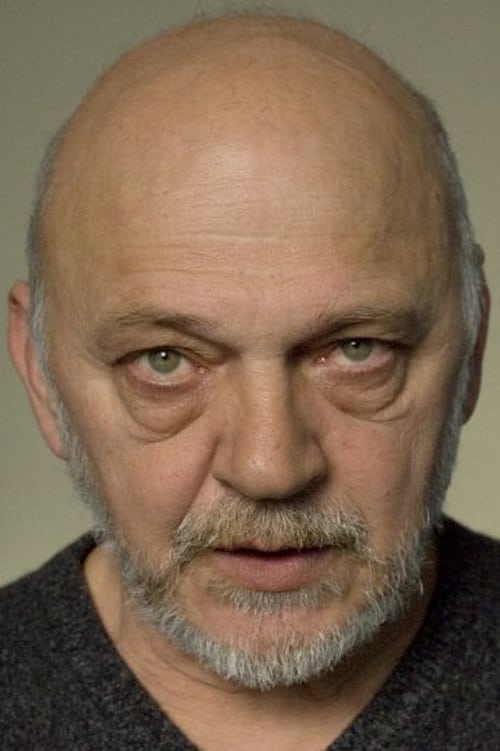Kira Kiralina (2014)
장르 : 드라마
상영시간 : 1시간 39분
연출 : Dan Pița
각본 : Ioan Grigorescu, Dan Pița
시놉시스
A movie adaptation of the eponymous novel by Panait Istrati, which tells the story of a mysterious, beautiful woman which, together with her mom, is selling her charms. The movie is filled with the atmosphere of Brăila in the 1900s

Based on a 19th century tale, this self-referential fantasy, complete with musical and animated interludes plus a cast of fairytale characters, tells the story of a bet between an old man and a fairy over a bag with two gold coins.

The movie is based on a true story from the end of WWI, in Transylvania. A nobleman who owned some land in Transylvania returns home to find a part of his fortune burned to ashes during late 1918 when power was trasfered from AustroHungary to Romania. Looking for revenge, he ordered the killing of innocent Romanian peasants from a neighbouring village, which he suspected to be guilty for the losses he suffered. A Romanian officer from Romanian Transylvanian Volunteers Corp, decides to help the villagers to face the menace of the nobleman

A provincial young girl, a farming engineer, does not want to return to the countryside on graduating, but stay in the capital. But she needs a Bucharest identity card to do this. Her solution is to "buy" a husband...

Adapted from a folk legend, it tells the story of a bad-tempered nobleman and his chronically useless younger son - who dreams of being the mythical hero Harap Alb.

Follows the inner transformation of a man who tried to fight his demon, the love for money, and lost.

Three sequences which could have formed separate stories are linked together to give a larger perspective on the nature of reality and film. The three episodes are joined together by one film crew at work. In the beginning, the crew is introduced as they juggle their dual roles as State-supported propagandists who laud their government and society, and as private movie makers working on their own film. Next, they are in a restaurant looking for suitable locations to film when the eatery’s owner is induced to wax long and lugubriously on his miserable life. In the last segment, two extras are in the background of a scene, sitting at a table in a restaurant. It slowly becomes apparent to one of them that the man he’s sitting with tortured him more than 40 years ago at a Nazi concentration camp during World War II.

Based on a theatrical text by Romanian writer Ion Luca Caragiale (1852-1912), who was a bitter and funny witness of the turn-of-the-20th-century Romanian bourgeois mores, Carnival Scenes manages to preserve and further enhance the slightly hysteric atmosphere of his plays. Pintilie creates a strange combination of carnival scenes which is brought to the screen as a burlesque, fast-paced, screwball comedy with a meditative undertone. This film was banned in Romania for a decade until the death of Ceausescu in 1989 and was only released after the 1989 revolution.

Savu and Panait, two drivers working for a firm of construction and assembly must ensure the movement of a giant machine. Along the way, she meets Miriam, a young gone to meet his fiance even transport your destination. Identity documents and stolen his train ticket. The two drivers decide to give her journey. After a night in a motel, drivers have an argument that is not foreign to the presence of Mary. For their silence, Savu decides to disembark. Not long after, overcome by remorse, turn back looking for her and thus reach his village which had left years ago. Here, Maria discovers drama of the human soul, wounded by an unhappy marriage. Arriving at your destination, are the husband of Mary is already married two months. Two men and a woman on the road to return, beyond sadness after a ravishing experience.

When the Soviet Army marched into Romania in 1944, a part of the Romanian population went “into the mountains” – a diverse assortment of nationalists and fascists, liberals, apolitical farmers and members of the middle-class, who were affected by the Communists’ expropriations. Over a thousand armed resistance groups took refuge in the inaccessible forests of the Carpathian Mountains where they waited in vain for the support of the Western Allies. One of them was led by Ion Gavrilă-Ogoranu, who managed to remain undetected until 1976 when he was arrested. This film depicts the daily existence of this group. It tells the story of a struggle that became an end in itself, as the enemy was constantly in pursuit and arrest meant torture and often liquidation. Hungry and emotionally withdrawn, the group of young men got entangled in a partisan war that could not be won, lost in the landscape of the South Carpathians, accompanied by a vigilant secret police, the Securitate.

This Romanian dramatic comedy offers metaphorical commentary on life after Ceausescu's reign as it tells the story of a rural community turned topsy-turvy in their mad quest for the snails a prominent senator has requested for his dinner. The trouble begins when a rather imposing, pompous senator comes to visit a small rural Romanian town for a ribbon-cutting ceremony for their new hydro-electric dam. After he finishes his speech, the senator is accosted by a Swiss film crew eager to interview him. The senator is inordinately concerned with presenting a positive image of Romania to the world at large and so when he learns that he and the journalists are to stay at the same villa, does everything he came to make sure that they see nothing scandalous.

In 1919 at the end of WW1 Romanian peasant Manolache Preda returns to his native village where he finds his woman taken by another and his land sold to the local landowner.

The best workers from various factories in the communist system are rewarded a cruise on the Danube. The people in charge fight for bureaucratic reasons while the young ones are looking for adventure.

The life-story confession of a prisoner waiting for his trial. Victor Petrini, a promising intellectual in the 1950s and a lecturer in Philosophy is arrested by the repressive secret police, wrongly accused of espionage, and sentenced to prison and forced labor.

In this very black comedy about ill-suited neighbors united by marriage, Niki is a former colonel in the Romanian army whose daughter is married to the son of Flo, an aging Bohemian who is full of schemes for the “new” Romania. As the young couple prepares to emigrate to the U.S., Niki is obliged to interact with Flo, whom he finds totally unbearable.

Lizuca is only six years old, not much older than her pet dachshund Patrocle, when her mother dies and she is left to live with her grandparents on their farm. Before long, Lizuca's father comes to take her away to live with him and his new bride, a vile woman who considers children the bane of all existence. Lizuca and the dachshund escape the wicked stepmother and spend the night in a hollow tree, a tree that changes into an enchanted land where Lizuca (like Alice through the Looking Glass) discovers a world of characters in the form of bees, frogs, the four seasons, Snow White, her dwarves, and other fairy tale creatures. This magic place is threatened by the evil stepmother's plan to sell the grove that protects the secret land to developers -- a decision that puts the woman on trial before this perfidy can be realized.

In this monumental Romanian film, a large family and its many generations vie for advantage, seeking to win the inheritance sure to be left behind by a wealthy older man of the clan. This movie is based on a popular novel by George Calinescu, and is similar in some ways to England's BBC television series, The Forsythe Saga, based on Galsworthy's books. Along the way, stories of friendship, love and rivalry emerge. In one story, a poor young man is disappointed in love as his girl chooses lucre over love in selecting a mate.

A sequel to Moromeții (1987), the tale follows the life of the Moromete family after WWII, with Romania being overpowered by Communism.

The end of Trajan's Dacian Wars (106 AD), when south western Dacia was transformed into a Roman province: Roman Dacia.

A story of an apolitical police commissar who is using odd methods against the gangsters.

A dialogue free Romanian science-fiction spy-comedy that draws upon farce, satire and surrealism as it subversively deconstructs the spy thriller with the protagonist's accidental discovery of a nuclear suitcase bomb and the subsequent fight over ownership between the rival powers of the criminals and the military.



























